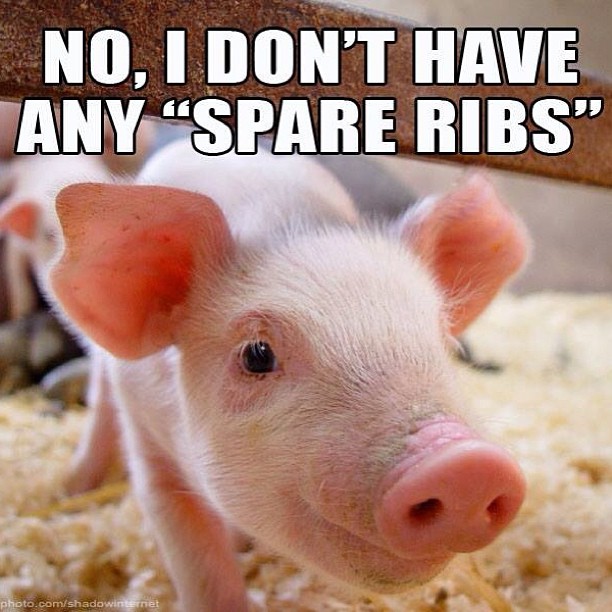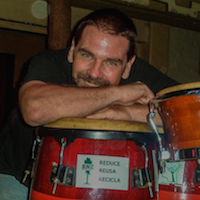As part of a work assignment, I have been scouring the internet over the past couple of weeks, searching for articles, photos and quotes on vegetarianism.
What I have found in abundance are vegetarian recipes and photos of celebrities, advocating for animal rights. Both of these are useful, no doubt.
I love coming across new recipes, especially if they are quick solutions for preparing healthy meals. Celebrities have the advantage of reaching large audiences instantly, so it is fantastic that some choose to use that platform to promote pressing social issues, rather than selling perfume or whiskey.
The ethical treatment of animals is a critical issue to the debate about meat production and consumption.
Animals in factory farming operations (mostly cows, pigs and chickens) live in deplorable conditions that should be condemned by all cultures and nations. The inhumane conditions to which animals are subjected surely lead many people to choose a vegetarian diet, but there are other issues related to meat production that often go undiscussed.
We must work to create a culture of compassionate vegetarianism.
This means considering the wellbeing of animals, our own bodies and the planet.
Conventional meat production is fast becoming one of the most destructive activities on earth: devastating soil, water, air, souls and our own bodies. Our global demand for meat is predicted to double by 2050.
Meat production is a major contributor to climate change and the growing global demand for meat will only cause more damage.
The 285 million tons of meat produced each year would average out to about 80 pounds per person, if it were divided equally—but it’s not. In the United States, the average person consumes 270 pounds of meat, while in other developing nations, that number is as low as four pounds.
Much of the growing demand for meat has nothing to do with fighting hunger, but rather, it has everything to do with satisfying the unhealthy diets of people in the United States and other developed countries.
More meat production means more destruction.
Currently, 26 percent of the earth’s ice-free land is used for grazing, and feed crop production uses about another 33 percent of all arable land. Because public and private lands in the United States have largely been destroyed by overgrazing, much of the production of livestock is now being done in Central and South America.
Millions of hectares of rainforest and other tropical lands are being deforested for grazing and to produce grain for livestock. The Food and Agriculture Organization of the United Nations reported that,
“Ranching-induced deforestation is one of the main causes of loss of some unique plant and animal species in the tropical rainforests of Central and South America as well as carbon release in the atmosphere.”
In a world where 805 million do not have enough to eat, livestock are consuming 1.3 billion tons of grain a year.
Instead of using arable land to produce food for food insecure people, we are producing grains to satisfy the insatiable desire for meat in the world’s wealthiest countries.
Livestock production also requires roughly one third of the world’s fresh water resources. Water is perhaps our most precious natural resource, and there are currently 750 million people in the world who lack access to potable water. If we focused on providing food and water for people, rather than livestock, we could eliminate hunger and increase the quality of life for the millions who suffer each day because their most basic needs are unmet.
It is unthinkable, at this stage in our human development, that millions go without food and water every day, while so many others are strapped with abundance.
The consequences of the massive production of meat are terrifying. Livestock production is responsible for approximately 19 percent of all greenhouse gas emissions, which directly accelerate climate change. The livestock industry also produces an estimated 355 million tons of waste per year. That’s nothing to piss at.
In addition to contaminating ground water and soil, animal waste contains many pathogens (Salmonella, E. coli, Cryptosporidium, and fecal coliform to name a few) that can cause at least forty different diseases in humans. It goes without saying that manure could potentially be used as an excellent, natural fertilizer. However, since most animals are now raised on Concentrated Animal Feeding Operations (CAFOs) the sheer quantity and concentration of waste makes it nearly impossible to manage responsibly.
If that weren’t enough, meat consumption has also been directly related to a number of human health problems, including heart disease, obesity, cancer (meat contributes to acidity in the human body, which facilitates the growth of cancer cells) and diabetes.
Also, the massive amounts of antibiotics and growth hormones used in the commercial production of meat are being passed on directly to the consumer. This can lead to problems in reproductive and immune systems and also paves the way for cancer.
The long and short of it is that meat production and consumption is highly detrimental to human health, animal health and the health of our planet.
It is vital that we begin to make some personal sacrifices, in the name of compassion:
Compassion for the animals, who suffer from inhumane conditions.
Compassion for the 805 million people who don’t have enough to eat today.
Compassion for the 750 million people who do not have access to fresh water.
Compassion for the millions of hectares of land being destroyed to satisfy our meat addiction.
Compassion for our own bodies, suffering from the pollution caused by the meat industry, as well as the diseases related to meat consumption.
We need compassionate vegetarianism, for our own good and for the wellbeing of the generations to come.
Relephant Reads:
Farmer Reaches Breaking Point: What one Factory Farm Considers “Humane.”
Teaching Compassion through Vegetarianism.
Author: Peter Schaller
Editor: Emma Ruffin
Photo: Christopher Johnson/Flickr







Read 6 comments and reply